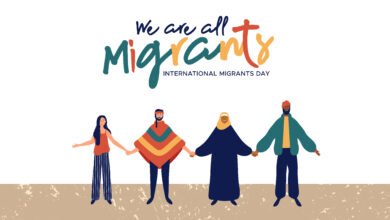Analysis of Bauchi and Kebbi States’ School Closure Policy During Ramadan: Implications and Considerations

Introduction
The decision by the governments of Bauchi and Kebbi states to close all schools for five weeks during the Ramadan fasting period has sparked considerable debate. While religious observance is a vital part of spiritual life, the impact of this policy on education, particularly in a state like Bauchi with one of the highest rates of educational deprivation in Nigeria raises serious concerns.
Overview of the Policy Decision
- Bauchi State: Schools will be closed from February 26, 2025, to April 6, 2025, covering the Ramadan fasting period and the Salah celebrations. The second term will be divided into two phases, causing a major interruption in the academic schedule.
- Kebbi State: Schools will close on February 28, 2025, with the second term ending earlier than planned. The third term will begin on April 7, 2025.
- These closures affect all nursery, primary, and secondary schools, whether public and private school without any exception.
Criticism and Opposition
1. Impact on Students’ Academic Performance
- The five-week break disrupts academic continuity, especially for students preparing for critical external exams such as WAEC, NECO, and JAMB.
- Private school owners have argued that the policy will result in incomplete academic schedule, affecting the preparedness of the students.
- Unlike tertiary institutions, which remain open, secondary school students will be deprived of structured learning, widening the educational gap.
2. Violation of Religious Inclusivity
- Christian faith-based private school owners and parents have argued that while Islam is a major religion in the region, forcing all students, including non-Muslims, to observe the break is discriminatory.
- The policy raises concerns about religious coexistence and inclusivity, potentially causing tension between Muslim and Christian students.
3. Bauchi’s Alarming Educational Deficit
According to the National Bureau of Statistics (NBS) Multidimensional Poverty Index:
- 74% of children in Bauchi State have failed to attain formal education.
- 54% of children in the state are deprived of education, the highest percentage in Nigeria.
- This figure surpasses crisis-affected states like Zamfara (44%) and Borno (48%).
Hence, with Bauchi State already struggling with high dropout rates and low literacy levels, a five-week halt further exacerbates the crisis.
4. Alternative Models from Other States
States like Kwara State and Sokoto State have adjusted school hours to accommodate fasting students instead of implementing full closures. This model ensures that education is not disrupted while also allowing Muslim students to observe religious obligations.
5. Global Perspective on Education and Religious Accommodation
- The United Nations and UNESCO recognize education as a fundamental right. International best practices emphasize inclusive education policies that accommodate religious observances without compromising academic progress.
- In Indonesia and Malaysia, predominantly Muslim nations, adjustments are made to school hours rather than outright closures.
- In the United Kingdom, schools provide flexible arrangements for fasting students during Ramadan without stopping academic activities.
- The United States and Canada also accommodate religious practices within school policies without disrupting the education of non-participating students.
Balancing Religion and Education: Possible Solutions
Rather than shutting down schools entirely, alternative approaches could include:
- Reduced school hours during Ramadan, as seen in Kwara and Sokoto states.
- Optional closures, allowing schools to decide whether to stay open or close based on their student demographics.
Conclusion
While religious observances are important, they should not override the right to education. The decision to enforce a five-week school closure in Bauchi and Kebbi states disrupts academic progress, disproportionately affects students preparing for external exams, and further exacerbates Bauchi’s already critical educational deficit. The government should reconsider this policy to avoid setting a precedent that undermines educational access and equity.





